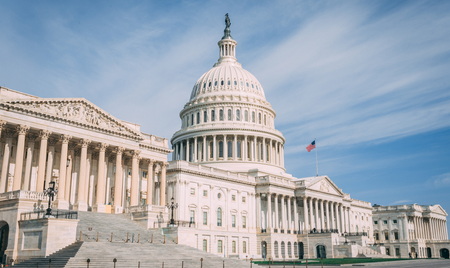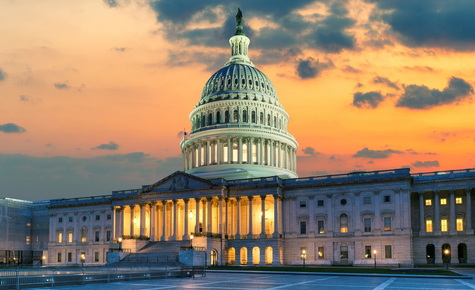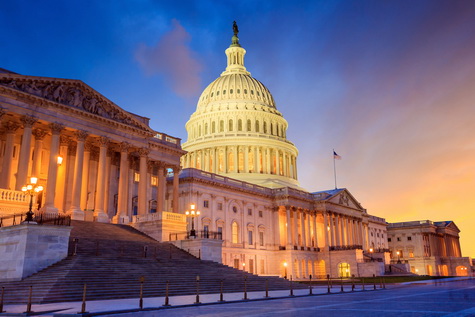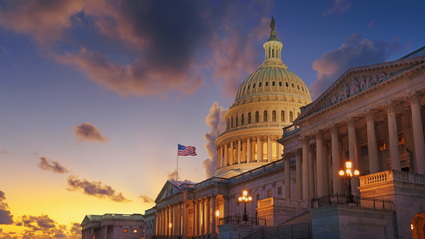
The Senate processed amendments this week on bipartisan legislation for hundreds of billions in new investments in the nation’s “physical” infrastructure. Majority Leader Chuck Schumer (D-NY) pushed to continue votes this weekend on the bipartisan measure – with further plans next week to separately consider an anticipated $3.5 trillion budget resolution for “human infrastructure” designed to pass with only Democratic support. (BGov, Aug. 6)
Bipartisan “Physical” Infrastructure Deal
- The Senate’s Bipartisan Infrastructure Investment and Jobs Act ( text as of Aug. 3 | section-by-section – also known as the “Bipartisan Infrastructure Deal” (BID) – proposes $550 billion in new infrastructure investment.
- Summaries and fact sheets from the Biden Administration break down the amounts invested in the BID’s various infrastructure categories. The bipartisan deal is estimated to create around 2 million jobs per year over the next decade.
- The bill needs 60 votes to pass in the Senate, requiring support from at least 10 Republicans.
- The BID includes no new tax increases. Most of its proposed “pay-fors” involve repurposing previously enacted COVID relief funds.
- Senate policymakers struggled to complete work on the bipartisan deal this week amid concerns over taxation on cryptocurrency and yesterday’s release of a score by the Congressional Budget Office score, estimating the bill would add $256 billion to the deficit over 10 years. (Politico, Aug. 5; Wall Street Journal, Aug 6; The Washington Post, Aug. 6)
The BID, Real Estate, and Community Development
- The Real Estate Roundtable has summarized elements of the BID of particular interest to real estate owners and community developers, that align with The Roundtable’s longstanding infrastructure policies. [“Spending and Other Provisions Pertinent to Real Estate and Community Development”]
- The Roundtable’s summary addresses the BID’s provisions for:
- Billions of proposed investments in various infrastructure asset classes dedicated to roads, bridges, mass transit, high-speed rail, broadband, the power grid, water pipes, and electric vehicle charging;
- Supporting public-private partnerships;
- Streamlining the federal permitting process; and
- Improving the key federal energy data that supports EPA building labels (Roundtable Weekly, July 16)
“Human” Infrastructure Package
- If the BID legislation is approved, it would prompt the Senate to move to a $3.5 trillion budget plan that includes President Biden’s wide-ranging domestic priorities supporting “human infrastructure.”
- No Republicans are expected to support the $3.5 trillion measure. Democrats must first pass a joint budget resolution to avoid a Senate filibuster, that authorizes the use of special “reconciliation” rules and sets a course for passage on a party-line vote
- Senate Budget Committee Chairman Bernie Sanders (D-VT), above, signaled that the reconciliation package would include spending for health care, child care, education, paid family and medical leave, and affordable housing. Reconciliation is also expected to address immigration and climate change matters. ( Wall Street Journal, Aug. 3)
After Labor Day, Democratic members are expected to meet to decide on which provisions to include in the human infrastructure package, including tax increases on businesses and individuals.
# # #
























